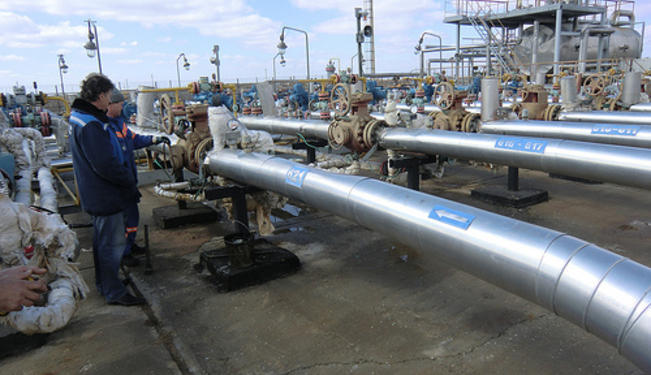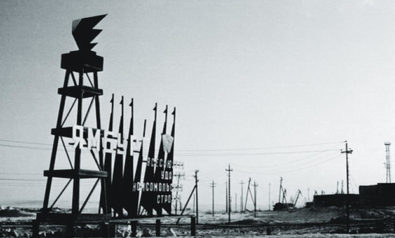Background
It is no wonder why Russia is commonly referred to as one of the world’s energy superpowers. The nation holds the world’s largest known natural gas reserves, the second largest known coal reserves, and the eighth largest known crude oil reserves. It leads the world in natural gas production and exportation and is one of the largest producers and exporters of oil. Because of the abundance of Russia’s energy supply, particularly natural gas and oil, it is one of the key players in the global energy market and could soon be a major player in foreign affairs.
Energy exports have played a significant role in Russia’s economy since the collapse of the Soviet Union in 1991. It was the energy sector that helped fuel Russia’s economic recovery after the 1998 financial crisis and it is Russia’s oil and natural gas exports that have allowed Russia to reemerge as an international power. While the country has tried to diversify its economy to decrease its economic dependence on the energy sector, it is clear that not only is the country still heavily dependent on this resource, but also that the state of its economy depends on whether oil prices are rising or falling. The country’s gross domestic product (GDP) declined dramatically, about 8%, in 2009 due to decreases in oil prices and the world financial crisis. Russia’s GDP however grew by 4.2% in 2011, making its GDP growth the third highest behind China and India. This growth can be attributed to the rise in oil prices around the world. Although strategic initiatives related to Russia’s energy policy are necessary to ensure that Russia’s economy continues to grow, rises in oil and gas prices will help in ensuring the stabilization of Russia’s economy.
Natural Gas
Gazprom has emerged as the dominant player in Russia’s energy industry. Gazprom is a state-run company and the Russian government controls slightly more than 50% of its shares. The company owns and operates the majority of Russia’s natural gas reserves, controls 90% of Russia’s natural gas production and over 25% of the world’s natural gas reserves. Furthermore, the company has a monopoly on the natural gas pipelines and exclusive rights, which were granted by federal law, to export natural gas. In 2005, the Russian government abolished the “ring fence” and allowed for foreign investment in Gazprom, however, only a very small percentage of the company is owned by foreign investors.
Oil
Russia is the second largest producer of oil after Saudi Arabia, and is the largest non-OPEC producer. The Russian government controls approximately 30% of Russia’s oil production through the companies Rosneft and Gazprom Neft. It controls all oil trunk pipelines with the exception of the Caspian Pipeline Consortium (of which it is the largest shareholder) through the state-owned entity Transneft.
Other Energy sources
In addition to natural gas and oil, Russia is also a major producer of electricity, ranking fourth globally. It is also a top producer of coal.
Why is it relevant?
Because of the role Russia plays in the global energy industry and because of the growing energy demands among consumer countries, Russia can and likely will use its position as an energy superpower to increase its leverage in international politics. Russia has attempted to purchase controlling stakes in European energy infrastructure, and in November 2011 succeeded in gaining control of Beltransgaz — Belarus’s natural gas transportation operator. Heavy dependence on Russian energy, and Russia’s ability to gain controlling stakes in European and Eurasian energy infrastructure, will allow Russia to gain more control over the domestic markets of consumer countries, and to play a larger role in their domestic and foreign affairs.
Russia has already been accused of using its energy abundance as a weapon in foreign affairs, particularly against post-Soviet nations. According to an article published on the website of FOI, a European research institute, there have been over 50 incidents (cut-offs, coercive price policies, threats) related to political or economic conflicts. Depending on how Russia integrates its energy policy with its foreign policy, and if countries continue to depend heavily on Russian energy, Russia may emerge as a dominating force in global politics.
For more than 10 years, Fair Observer has been free, fair and independent. No billionaire owns us, no advertisers control us. We are a reader-supported nonprofit. Unlike many other publications, we keep our content free for readers regardless of where they live or whether they can afford to pay. We have no paywalls and no ads.
In the post-truth era of fake news, echo chambers and filter bubbles, we publish a plurality of perspectives from around the world. Anyone can publish with us, but everyone goes through a rigorous editorial process. So, you get fact-checked, well-reasoned content instead of noise.
We publish 2,500+ voices from 90+ countries. We also conduct education and training programs on subjects ranging from digital media and journalism to writing and critical thinking. This doesn’t come cheap. Servers, editors, trainers and web developers cost money.
Please consider supporting us on a regular basis as a recurring donor or a sustaining member.
Support Fair Observer
We rely on your support for our independence, diversity and quality.
Will you support FO’s journalism?
We rely on your support for our independence, diversity and quality.





